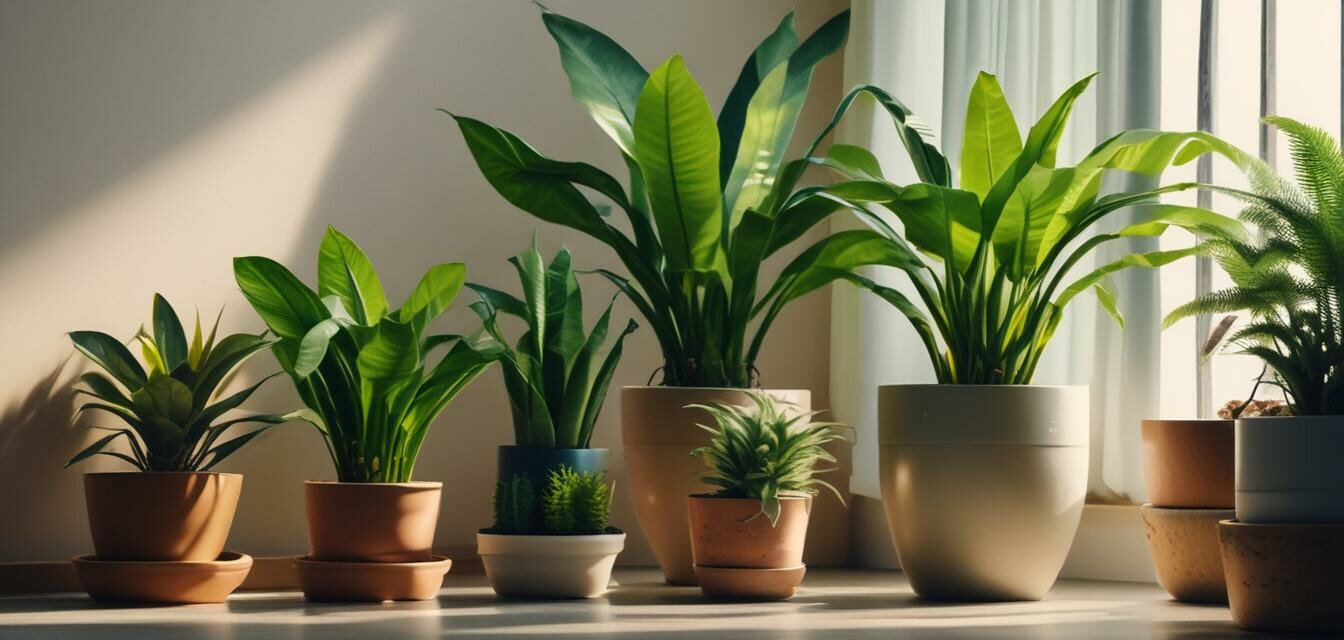
Eco-Friendly Trends in Houseplant Care
Key Takeaways
- Embrace sustainable practices for healthier houseplants.
- Explore eco-friendly products that promote plant growth.
- Utilize natural fertilizers and pest control methods.
- Learn how to upcycle materials for plant care.
- Stay updated with the latest trends in eco-friendly gardening.
Indoor gardening is flourishing, and with it comes the growing trend of eco-conscious practices that make your houseplant care not only beautiful but also sustainable. In this article, we delve into the latest eco-friendly trends in houseplant care, ensuring your green space is as kind to the environment as it is to your home’s aesthetic.
The rise of eco-friendly products
Using eco-friendly products has become a significant trend among plant lovers. These products not only benefit your plants but also contribute to the health of the planet. Let’s explore some popular options:
| Product Type | Description |
|---|---|
| Biodegradable pots | Pots made from sustainable materials that degrade over time, reducing plastic waste. |
| Organic fertilizers | Natural fertilizers that enhance soil health without harmful chemicals. |
| Eco-safe pest repellents | Pest control products derived from natural ingredients, safe for both plants and pets. |
Benefits of using eco-friendly products
- Supports a healthier ecosystem
- Enhances soil quality
- Reduces environmental impact
- Safe for households with children and pets
Natural fertilizers: A sustainable choice
Incorporating natural fertilizers is another vital trend helping plant enthusiasts grow thriving houseplants. Here are some effective options:
- Compost: Rich in nutrients, compost is a fantastic material for enriching the soil.
- Worm castings: An organic fertilizer promoting healthy root systems and plant growth.
- Fish emulsion: A liquid fertilizer derived from fish waste, great for promoting flowering plants.
- Homemade plant food: Safe and simple DIY solutions can be made from kitchen scraps.
Upcycling: Sustainable plant care techniques
Another fascinating trend in the houseplant community is upcycling. This eco-friendly practice involves reusing materials you already have at home, minimizing waste and saving money. Here are some creative ideas for upcycling in your plant care journey:
- Using glass jars as stylish planters
- Transforming old tea cups into unique pots
- Repurposing wooden crates as plant stands
- Creating self-watering pots from plastic bottles
Embracing natural pest control
With the absence of harsh chemicals, natural pest control methods are gaining popularity. Here are some ways to keep your plants healthy without resorting to synthetic pesticides:
| Method | Description |
|---|---|
| Neem oil | A natural oil extracted from the neem tree, it acts as a powerful insect repellent. |
| Insecticidal soap | Made from natural plant oils and fats, effective against soft-bodied insects. |
| Diatomaceous earth | A natural powder that eliminates pests by dehydrating them, safe for plants and humans. |
Staying updated with eco-friendly trends
To keep your indoor gardening practice fresh and eco-conscious, it’s essential to stay informed about emerging trends. Following reputable blogs and websites such as our own News and Trends section can help you catch the latest in sustainable gardening.
Conclusion
By embracing eco-friendly trends in houseplant care, you are contributing to a healthier planet while enhancing your indoor space. From utilizing biodegradable pots to opting for natural pest control, every small change can make a significant impact. Explore our Low-Maintenance Houseplants selection to find the right plants for a sustainable lifestyle and join the vibrant community of plant enthusiasts committed to environmentally friendly practices.
Pros
- Supports environmental conservation
- Reduces chemical usage in plant care
- Encourages creativity through upcycling
- Safe for children and pets
Cons
- May require more research and preparation
- Natural products can be less potent
- Eco-friendly practices might be more challenging to implement initially

